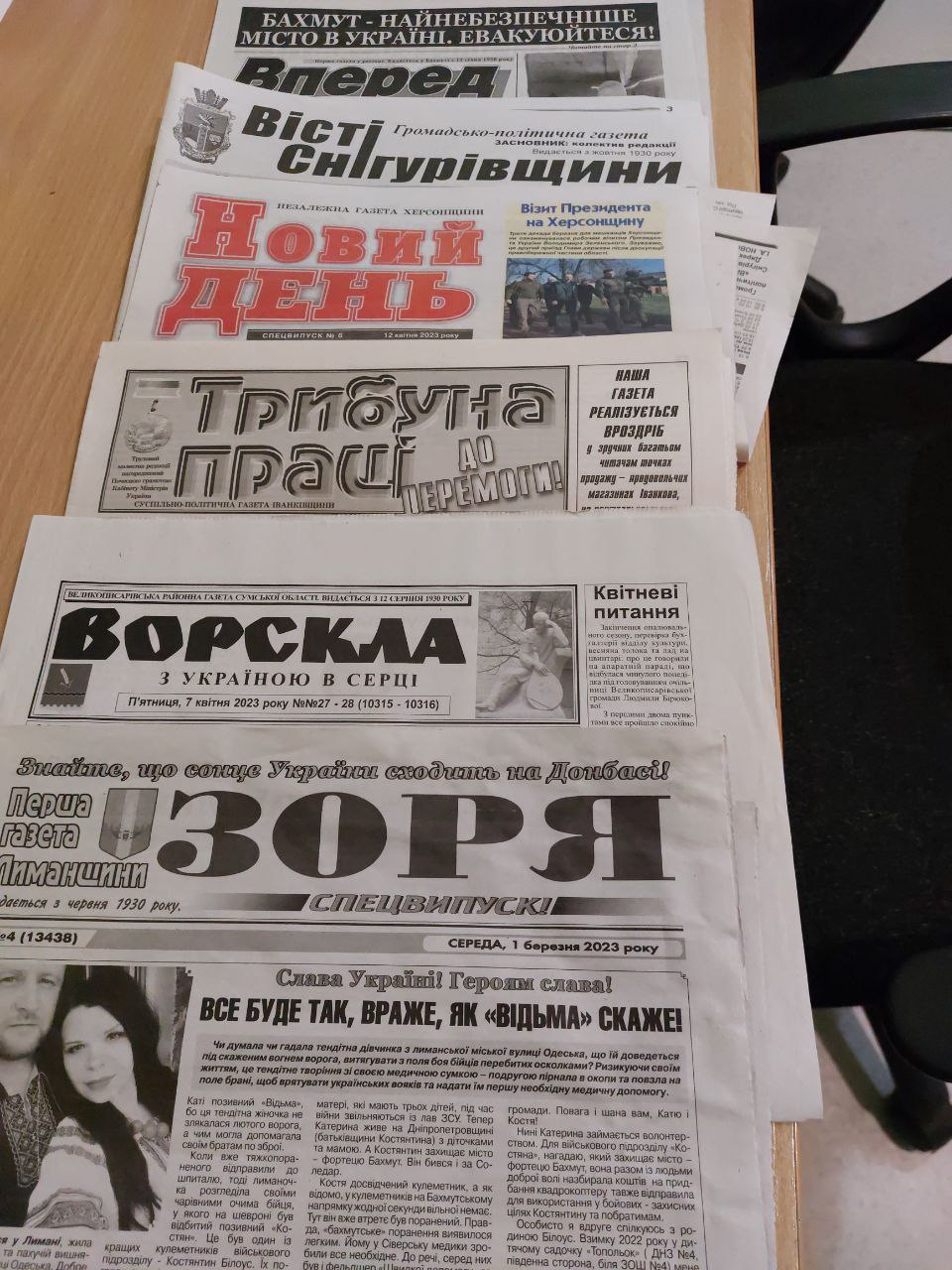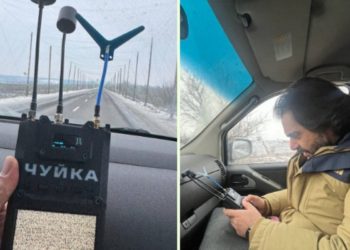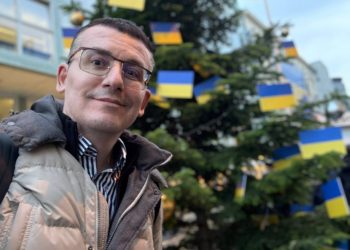In times of war, the work of journalists is more important than ever.
The National Union of Journalists of Ukraine (NUJU) is trying to support local media in the de-occupied and front-line territories. After the liberation, many media resumed their work. NUJU‘s duty is to help, support, fundraise, and make recommendations to donors.
NUJU President Sergiy Tomilenko stated this in the podcast of Andrii Kulikov (Public Radio).
“The Union supports the diversity of the media. All of them are important: television, radio, newspapers, and online media. But in times of war, which throws society back to the conditions of the First World War, and the civilization into the trenches, when civil infrastructure is destroyed, print media are more important than ever,” Sergiy Tomilenko stressed.
The Union‘s President reminded that thanks to joint efforts with foreign benefactors, it was possible to support the release of the first issues of 25 local newspapers in the front-line and de-occupied territories. Many of them later managed to preserve their operation’s stable course.
Bakhmut Town’s iconic publication is the Vpered newspaper. Since October 2022, the newspaper has been published and delivered to Bakhmut residents and its surroundings. This is a front-line but civilian newspaper. It is published by the editorial office headed by Svitlana Ovcharenko, who was evacuated to Odesa but dared to continue informing the people of Bakhmut. The newspaper is printed in Kyiv, after which it is delivered to one of the settlements near Bakhmut. After that, it is delivered to Bakhmut itself and its surroundings by the military.
“The role of the newspaper in the front-line territories is essential because it carries verified information, debunks fakes, and calls on the population to evacuate, take care of own safety, and the safety of their families and children. Despite the devastation of the war, thanks to NUJU‘s foreign partners, this newspaper has stable funding,” said Sergiy Tomilenko.
The Vorskla newspaper is published in Velyka Pysarivka in the Sumy Region, near the Russian border. At the beginning of the war, in conditions of encirclement, the newspaper’s editor, Oleksii Pasiuha, printed a one-page newspaper on a printer and delivered it to populated areas. Vorskla is the most trusted local newspaper. When the occupiers were expelled from the Sumy Region, the publication’s publishing was resumed.
Here’s another example. Ivankiv, Kyiv Region is the territory that the Russians tried to conquer. Last year, when this territory was cut off, the editor of the Trybuna Pratsi newspaper, Pavlo Smovzh, continued to collect information about war crimes, came to the destroyed editorial office to save the binders – Ivankov’s chronicle, took out the paintings of a local artist… All this despite the danger to his life.
“Another example of a worthy journalist is Oleksandr Pasichnyk, the editor-in-chief of Lyman’s Zoria. Our colleague, who made a newspaper all his life. All processes were debugged. The key element of subscription and distribution is the local railway… Now the world around this journalist is destroyed, and he is staying in Kyiv as an internally displaced person. But this mature, authoritative person of retirement age, despite everything, takes up new newspaper technologies and regularly publishes new issues of Zoria, delivering it to Lyman. It was excruciating for Oleksandr Anatoliyovych to watch the consequences of a Russian missile hitting the house where his apartment was… But he continues to publish a patriotic newspaper for his countrymen, which often provides information that saves people’s lives and convinces that Ukraine is fighting and has not given up on Donbas!” Sergiy Tomilenko emphasized.
The NUJU President also mentioned the Visti Snihurivshchyny newspaper, distributed in Snihurivka, the only town of the Mykolayiv Region under Russian occupation for a long time. Deputy editor-in-chief, Valentyna Sokolovska, spent all this time in the enemy-captured town.
“Editor-in-chief Ihor Novikov, who was evacuated to Odesa, was thrilled when we offered to try to publish the newspaper’s first issue,” says Sergiy Tomilenko. “In the newly liberated Snihurivka, the activities of sappers and special services and the police were still going on, and Ihor Novikov was already preparing an issue of Novyny Snihurivshchyny.
Today, not only do local newspapers perform an informational function, but they are also public opinion leaders.
“Just the other day, I was in Chernihiv Region, in Horodnia, the community that borders Russia and Belarus simultaneously,” said Sergiy Tomilenko. “This was the first community through which the tanks passed. The only information resource available today is the Novyny Horodnianshchyny newspaper, where our worthy journalist colleagues work. The deputy editor-in-chief said that the townspeople involve him as an arbitrator to resolve disputed situations. And even when a newspaper is wrong, people are convinced that everything it wrote is true.”
Sergiy Tomilenko thanked the Swiss non-profit organization Fondation Hirondelle and the Institute for Regional Media and Information (IRMI, Ukraine), which implemented the project of institutional support of Ukrainian media editorial offices in the east, north, and south of our country with an emphasis on the local press.
“They support all our ideals and initiatives in the field of freedom of speech and media,” said Sergiy Tomilenko. “The war destroyed the economic foundations of the media. The classic approach, when the media could make money from advertising, subscriptions, and retail sales, is unfortunately not available at the moment. We hope that all this will be restored after the Victory in a peaceful Ukraine. But today, without external help, local media will, unfortunately, disappear, and therefore local residents will not have access to objective, professionally presented information.”

NUJU Information Service

 THE NATIONAL UNION OF
JOURNALISTS OF UKRAINE
THE NATIONAL UNION OF
JOURNALISTS OF UKRAINE
















Discussion about this post